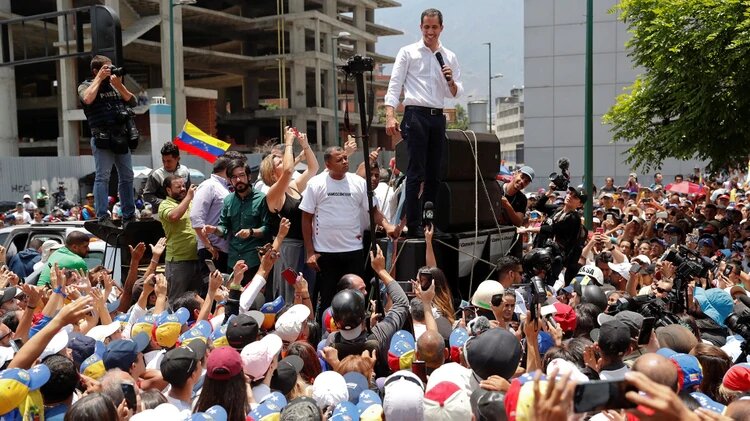
Venezuelan opponents and citizens overwhelmed by the economic crisis took to the streets on Wednesday in response to the call of interim president Juan Guaidó to the “biggest march” in the history of the country, a day after he summoned the military to depose the president in dispute, Nicolás Maduro.
In the area of El Marqués, Guaidó gave a speech to his supporters in which, in the midst of ovations, he announced that “the people will continue in the streets until they achieve the freedom of Venezuela.”
In addition, he informed that on Thursday the “proposal” of staggered work stoppages is launched. “Staggered stops begin until a general strike is achieved, every day there will be actions until freedom is achieved,” he revealed.
For their part, Maduro’s supporters also held marches in different cities around the country to commemorate Labor Day, following a call from the president in dispute to reject what he called the “coup” and the “Yankee interference.”
In his boldest attempt to attract the armed forces, Guaidó appeared early Tuesday morning in front of a Caracas air force base with dozens of members of the National Guard.
It was the beginning of a day of violent protests that left more than 100 injured, but no concrete sign of defections in the leadership of the armed forces.
“We know that Maduro does not have the backing or respect of the armed forces,” Guaidó said in a video message posted on his social media accounts on Tuesday night. “We have seen that the protest produces results, we must maintain the pressure.”
On Wednesday, the opposition leader reiterated the call to take to the streets. “Good morning, today we continue (…) We are still stronger than ever,” wrote Guaidó on Twitter.
Guaidó has the support of the United States and most of the western countries, but the leadership of the armed forces is still behind Maduro, like Russia, China and Cuba.
Tuesday’s demonstrations left 109 injured throughout the country and 119 detainees in different Venezuelan locations, representatives of the non-governmental groups Foro Penal and the Venezuelan Observatory of Social Conflict showed on Twitter on Wednesday.
Guaidó’s decision to elect the International Workers Day to summon the Venezuelans squares with his attempt to get support from unions and public workers, who have been a permanent support of Maduro and his predecessor and mentor, the late President Hugo Chávez.
With information from Voice of America and CNNEnEspañol.







